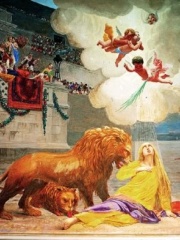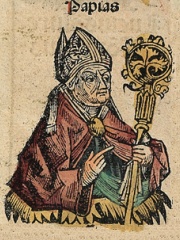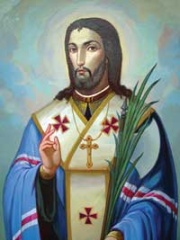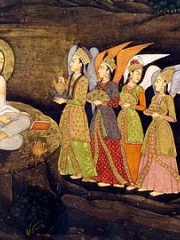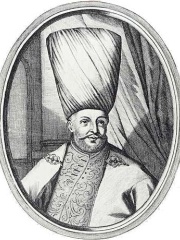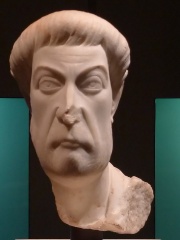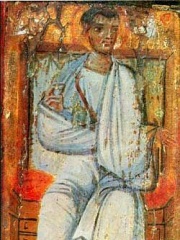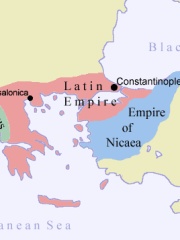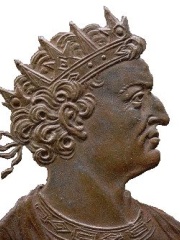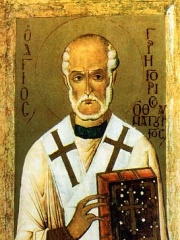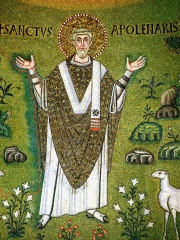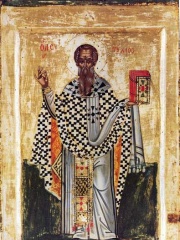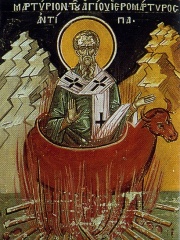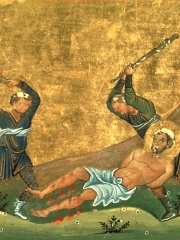Postać religijna
Haran
PL.WIKIPEDIA PAGE VIEWS (PV)

 Haran
Haran
Jego biografia jest dostępna w 28 różnych językach w Wikipedii (wzrost z 25 w 2024 roku). Haran jest 811. najpopularniejszym postać religijna (spadek z 738. w 2024 roku), 361. najpopularniejszą biografią Turcja (spadek z 332. w 2019 roku) oraz 62. najpopularniejszym postać religijna Turcja.
Memorability Metrics
Page views of Haran by language
Among Postać religijnas
Among postać religijnas, Haran ranks 811 out of 3,187. Before him are Isaac in Islam, Euphemia, Zephaniah, Papias of Hierapolis, Roger Etchegaray, and Josaphat Kuntsevych. After him are Ibrahim ibn Adham, Giuseppe Siri, Mahinda, John of Ávila, Blessed Gerard, and Thomas Wolsey.
Most Popular Postać Religijnas in Wikipedia
Go to all RankingsIsaac in Islam
HPI: 69.13
Rank: 805
Euphemia
289 - 304
HPI: 69.12
Rank: 806
Zephaniah
701 BC - 609 BC
HPI: 69.09
Rank: 807
Papias of Hierapolis
70 - 100
HPI: 69.08
Rank: 808
Roger Etchegaray
1922 - 2019
HPI: 69.07
Rank: 809
Josaphat Kuntsevych
1580 - 1623
HPI: 69.06
Rank: 810
Haran
HPI: 69.05
Rank: 811
Ibrahim ibn Adham
718 - 782
HPI: 69.04
Rank: 812
Giuseppe Siri
1906 - 1989
HPI: 69.02
Rank: 813
Mahinda
285 BC - 205 BC
HPI: 69.02
Rank: 814
John of Ávila
1500 - 1569
HPI: 69.02
Rank: 815
Blessed Gerard
1047 - 1120
HPI: 69.00
Rank: 816
Thomas Wolsey
1473 - 1530
HPI: 68.97
Rank: 817
In Turcja
Among people born in Turcja, Haran ranks 361 out of NaN. Before him are Chryseis (null), Euphemia (289), Köprülüzade Fazıl Ahmed Pasha (1635), Papias of Hierapolis (70), Fatma Sultan (1605), and Alexander Ypsilantis (1792). After him are Agabus (100), Eutropius (400), Thaddeus of Edessa (100), Alexios I of Trebizond (1182), Zenodotus (-330), and Pharamond (370).
Others born in Turcja
Go to all RankingsChryseis
POLITICIAN
HPI: 69.16
Rank: 355
Euphemia
RELIGIOUS FIGURE
289 - 304
HPI: 69.12
Rank: 356
Köprülüzade Fazıl Ahmed Pasha
POLITICIAN
1635 - 1676
HPI: 69.11
Rank: 357
Papias of Hierapolis
RELIGIOUS FIGURE
70 - 100
HPI: 69.08
Rank: 358
Fatma Sultan
POLITICIAN
1605 - 1667
HPI: 69.08
Rank: 359
Alexander Ypsilantis
POLITICIAN
1792 - 1828
HPI: 69.06
Rank: 360
Haran
RELIGIOUS FIGURE
HPI: 69.05
Rank: 361
Agabus
RELIGIOUS FIGURE
100 - 100
HPI: 68.95
Rank: 362
Eutropius
POLITICIAN
400 - 399
HPI: 68.95
Rank: 363
Thaddeus of Edessa
RELIGIOUS FIGURE
100 - 50
HPI: 68.90
Rank: 364
Alexios I of Trebizond
POLITICIAN
1182 - 1222
HPI: 68.87
Rank: 365
Zenodotus
WRITER
330 BC - 260 BC
HPI: 68.83
Rank: 366
Pharamond
POLITICIAN
370 - 427
HPI: 68.82
Rank: 367
Among Postać religijnas In Turcja
Among postać religijnas born in Turcja, Haran ranks 62. Before him are Gregory Thaumaturgus (213), Expeditus (300), Apollinaris of Ravenna (101), Eutychius of Constantinople (512), Euphemia (289), and Papias of Hierapolis (70). After him are Agabus (100), Thaddeus of Edessa (100), Mammes of Caesarea (259), Paul of Samosata (200), Antipas of Pergamum (100), and Onesimus (1).
Gregory Thaumaturgus
213 - 270
HPI: 69.67
Rank: 56
Expeditus
300 - 303
HPI: 69.67
Rank: 57
Apollinaris of Ravenna
101 - 75
HPI: 69.51
Rank: 58
Eutychius of Constantinople
512 - 582
HPI: 69.51
Rank: 59
Euphemia
289 - 304
HPI: 69.12
Rank: 60
Papias of Hierapolis
70 - 100
HPI: 69.08
Rank: 61
Haran
HPI: 69.05
Rank: 62
Agabus
100 - 100
HPI: 68.95
Rank: 63
Thaddeus of Edessa
100 - 50
HPI: 68.90
Rank: 64
Mammes of Caesarea
259 - 275
HPI: 68.67
Rank: 65
Paul of Samosata
200 - 275
HPI: 68.37
Rank: 66
Antipas of Pergamum
100 - 92
HPI: 68.35
Rank: 67
Onesimus
1 - 90
HPI: 68.29
Rank: 68

